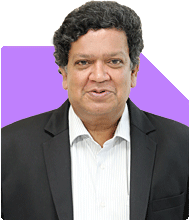Can anxiety really cause my body to be in pain all the time?
Dr Shakeeb Ahmed Khan | Answer |Ask -Follow
Physiotherapist - Answered on Mar 22, 2025
He has served as a technical consultant for the World Health Organisation, the United Nations, the Tata Institute of Social Sciences and several national and international NGOs.
Besides physiotherapy, he is keenly interested in disability management, early intervention, geriatric care and assisting children with disabilities.
Dr Khan has a bachelor's degree in physiotherapy from the Ravi Nair Physiotherapy College in Wardha, Maharashtra, a master's degree in disability rehabilitation administration from the National Institute for the Mentally Handicapped, Secunderabad, and a PhD in disability management from Bangalore University.... more
I have been suffering from this problem for over 20 years. Most of the time, I experience pain in my body, and whenever I am in front of my boss and he asks me anything, I get extremely nervous and my body feels weak and drained all the time.
You may like to see similar questions and answers below
Dr Karthiyayini Mahadevan | Answer |Ask -Follow
General Physician - Answered on Mar 06, 2023
Dr Ashish Sehgal | Answer |Ask -Follow
Relationships Expert, Mind Coach - Answered on Mar 29, 2023
Dr Ashit Hegde | Answer |Ask -Follow
Consultant Physician, Internal Medicine and Critical Care Expert - Answered on Sep 23, 2023
Anu Krishna |1745 Answers |Ask -Follow
Relationships Expert, Mind Coach - Answered on Mar 11, 2024
Dr Dipankar Dutta |1836 Answers |Ask -Follow
Tech Careers and Skill Development Expert - Answered on Dec 05, 2025
Ulhas Joshi |280 Answers |Ask -Follow
Mutual Fund Expert - Answered on Dec 05, 2025
Dr Dipankar Dutta |1836 Answers |Ask -Follow
Tech Careers and Skill Development Expert - Answered on Dec 04, 2025
Ravi Mittal |676 Answers |Ask -Follow
Dating, Relationships Expert - Answered on Dec 04, 2025
Anu Krishna |1745 Answers |Ask -Follow
Relationships Expert, Mind Coach - Answered on Dec 04, 2025
Anu Krishna |1745 Answers |Ask -Follow
Relationships Expert, Mind Coach - Answered on Dec 04, 2025
Mayank Chandel |2562 Answers |Ask -Follow
IIT-JEE, NEET-UG, SAT, CLAT, CA, CS Exam Expert - Answered on Dec 04, 2025
Mayank Chandel |2562 Answers |Ask -Follow
IIT-JEE, NEET-UG, SAT, CLAT, CA, CS Exam Expert - Answered on Dec 04, 2025
Mayank Chandel |2562 Answers |Ask -Follow
IIT-JEE, NEET-UG, SAT, CLAT, CA, CS Exam Expert - Answered on Dec 04, 2025
Mayank Chandel |2562 Answers |Ask -Follow
IIT-JEE, NEET-UG, SAT, CLAT, CA, CS Exam Expert - Answered on Dec 04, 2025



























